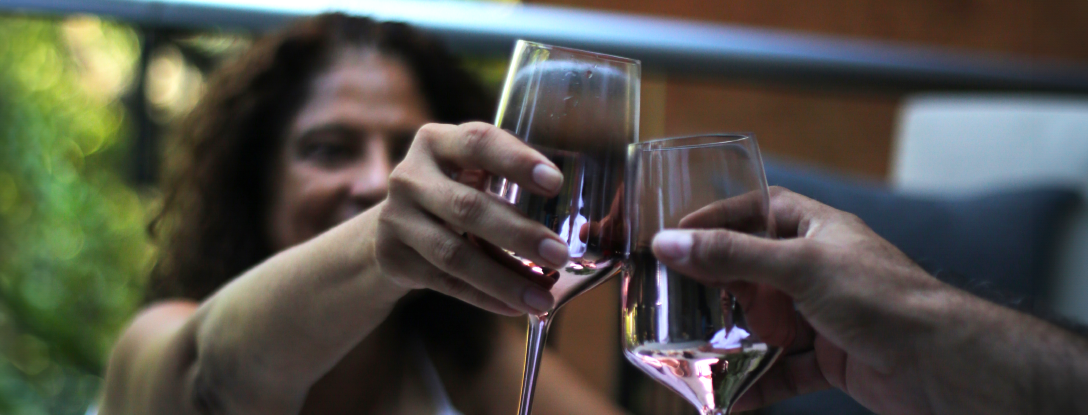Storing your Favourite Wines in a Tropical Climate
By sanjit Posted 10-06-2024 Architecture
Wine is more than just an alcoholic beverage. For many, it is a whole sensory experience that takes one on a journey through flavours, aromas, and regions. Maintaining its integrity is key to that experience. However, known for its delicate nature, the wine's quality and composition are susceptible to change with varying temperatures, light exposure, and humidity. Wine needs ideal storage conditions in order to preserve its aroma, flavour, and overall profile. Naturally, Goa, with its tropical climate conditions, makes the storage and quality of the wine quite challenging. Creating the ideal setting and storage is essential for the wine’s shelf life and overall profile.
Getting the Environment Right
Temperature is one of the most important factors in wine storage. Wine has been advised to be stored at a temperature of around 10 to a maximum of 18 ˚C, depending on the type of wine. The ideal red wine storage temperature ranges between 8°C to a maximum of 18°C, depending on the type of wine and how long it is needed to be stored. Rosé wine storage temperatures are similar to those of red wine, the darker the rosé, the colder it needs to be stored.
White wine, categorised into dry and sweet wine, requires a cooler storage temperature of 7 to 12°C as opposed to red wines and rosés. Keep in mind that a dry wine requires more cooling than a sweet wine. Lastly, sparkling wines require the coldest storage, typically between 5 to 7°C. While most sparkling wines are white, sparkling rosés may need to be stored at slightly warmer temperatures.
If the wine is exposed to a temperature above 24 ˚C, this can lead to the oxidation of the beverage, which in turn negatively affects the body of the wine. This can be quite an arduous task, with Goa temperatures rising up to 35 to 40 ˚C on a hot summer day. The high levels of humidity added to the mix are a surefire way to ruin the wine further. Alternatively, in an attempt to control the temperature, ensure the temperature does not go below 10 ˚C. While this may significantly slow down the ageing process, it can hinder the wine’s flavour and aroma development.
Maintaining the recommended temperature of the storage space is essential for the ageing process. If the temperature exceeds the recommended range, it can lead to premature ageing and cause it to lose its flavour structure.
Storage Solutions
Use a wine cooler or refrigerator to store the wine. Either of these options is designed to maintain a consistent low temperature, thereby ensuring a stable and cool environment for storage. Alternatively, invest in a wine cellar to safeguard the wine from potentially harmful external influences. It protects the goods from any external disturbances like vibrations or direct light exposure while maintaining the required temperature and humidity.
Key Pointers to Keep in Mind
Choose the coolest part of your home for storage, such as the basement or in one of the rooms in your 4BHK Luxury Villas in North Goa. Ensure it is away from direct sunlight or any other heat sources, like the kitchen area. Maintain the humidity levels at around 60% so as to not damage the corks of the wine bottles while also making sure there is no room for mould growth. Use a dehumidifier if required. Check the temperature and humidity levels of the storage areas on a regular basis with a thermometer and hygrometer.
Once the wine storage has been set up, place the wine horizontally to keep the cork moist and not dry. A dry cork can possibly shrink and allow air into the bottle, thereby reacting to the wine and oxidizing it. In addition to this, ensure there are no food items or cleaning products—anything with strong smells—close to the storage area, as these smells can get absorbed through the cork. This changes the flavour and aroma of the wine. The aim is to create the most suitable environment with consistent levels of temperature and humidity and no other external factors or disturbances coming into play.
Storing wine in a tropical climate, especially in a place like Goa that has extreme humidity and continual changes in the weather, requires extra care and attention. This is done to make certain that each wine bottle retains its intended flavour and quality.
Being a wine connoisseur means being knowledgeable and understanding the impact external factors like humidity, temperature, and light have on the beverage. If stored correctly, under the right conditions, and with the right storage equipment, the wine collection can be enjoyed for years to come. You may also like to read our blog post on feni cocktails to enjoy during the summer months in Goa.
This site uses Akismet to reduce spam. Learn how your comment data is processed.


